Abstract
Objective:
To determine the degree to which a selected number of variables could predict success on the first attempt at the National Athletic Trainers' Association Board of Certification Examination.
Design and Setting:
Data were obtained from the student records of subjects who were enrolled in the same undergraduate athletic training education program for a minimum of two years, maintained a minimum GPA of 2.5 on a 4.0 scale, and had taken the National Athletic Trainers' Association Board of Certification Examination. A telephone survey of the subjects was used to supplement these records.
Subjects:
Fifty-two subjects (38 male, 14 female) who had been enrolled for a mean of seven semesters (±2.57) participated in this study. Subjects maintained a mean overall GPA of 3.27 (± 0.39), with an athletic training mean GPA of 3.34 (±0.43) and an academic minor mean GPA of 2.91 (±0.46). The mean ACT composite score was 18 (±4.02).
Measurements:
Subjects sat for the National Athletic Trainers' Association Board of Certification Examination. Examination passing status, rather than subjects' scores on individual sections, was used in the analysis.
Results:
Analysis using forward multiple linear regression indicated that no single independent variable predicted examination success. However, a strong interrelationship was present between several of the independent variables. Multiple discriminant analysis was used to determine the nature and strength of these interrelationships. A composite set of variables was formed to include overall academic GPA, athletic training GPA, academic minor GPA, ACT composite score, and number of semesters of university enrollment. This composite set explained 42% of the variance in predicting successful completion of the entire examination on the first attempt. The predictive power of the composite set greatly decreased after the first examination attempt.
Conclusions:
Academic variables are the strongest predictors of first-time success on the overall National Athletic Trainers' Association Board of Certification Examination and its component sections.
Keywords: education, achievement, athletic training, undergraduate
Full text
PDF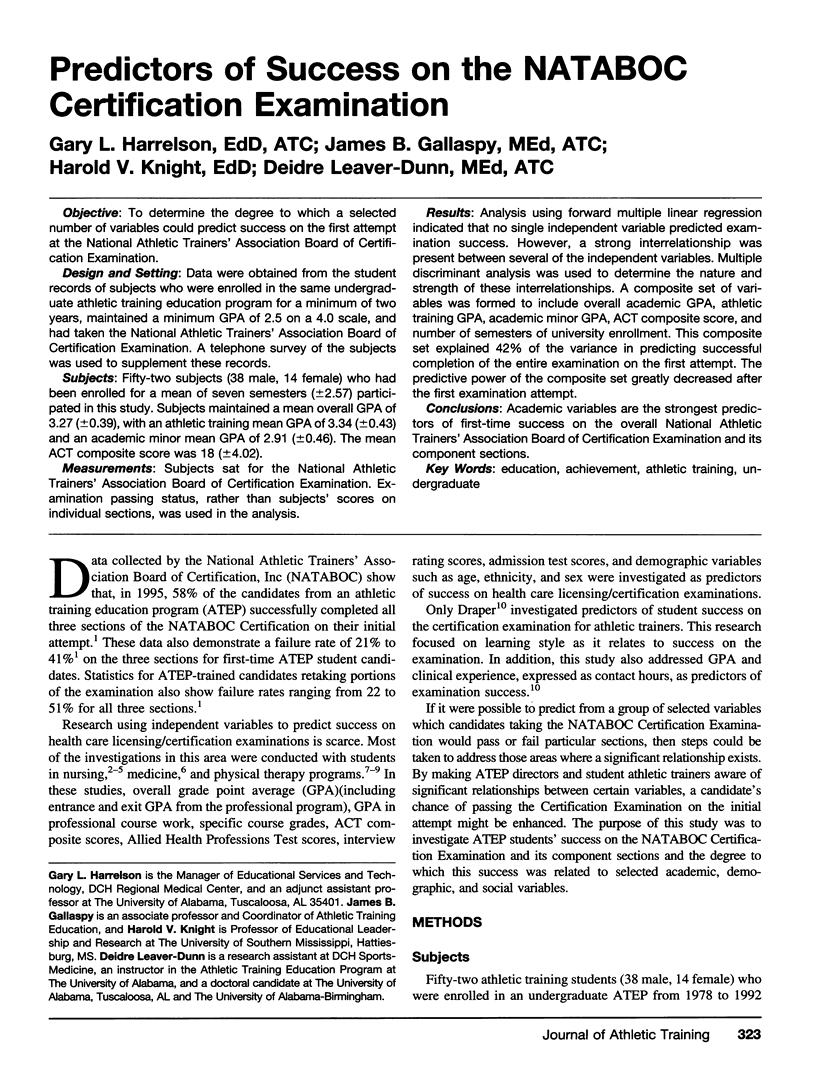
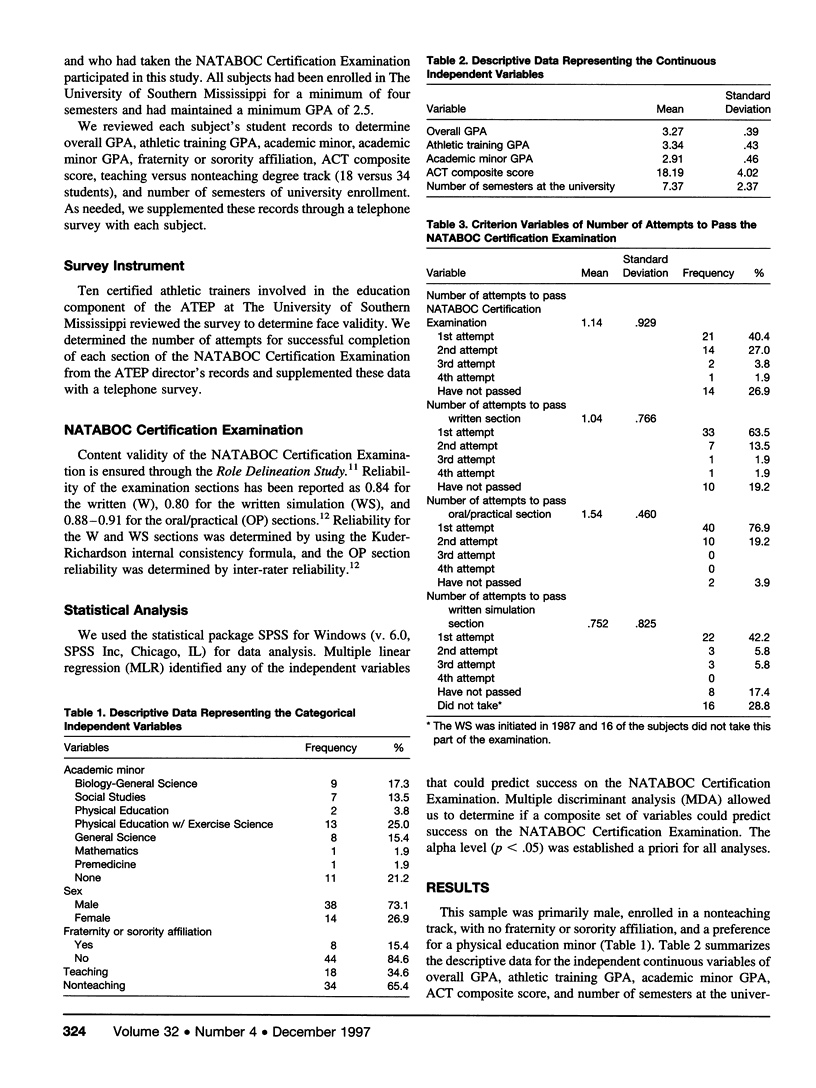
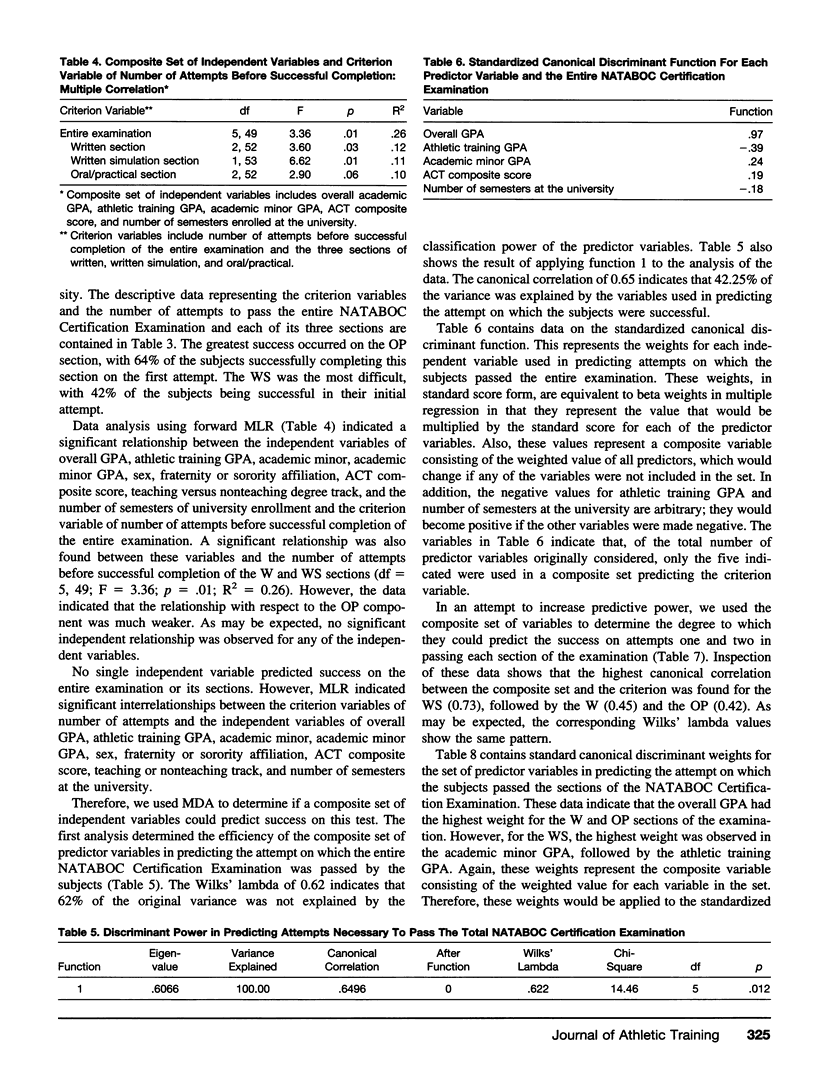
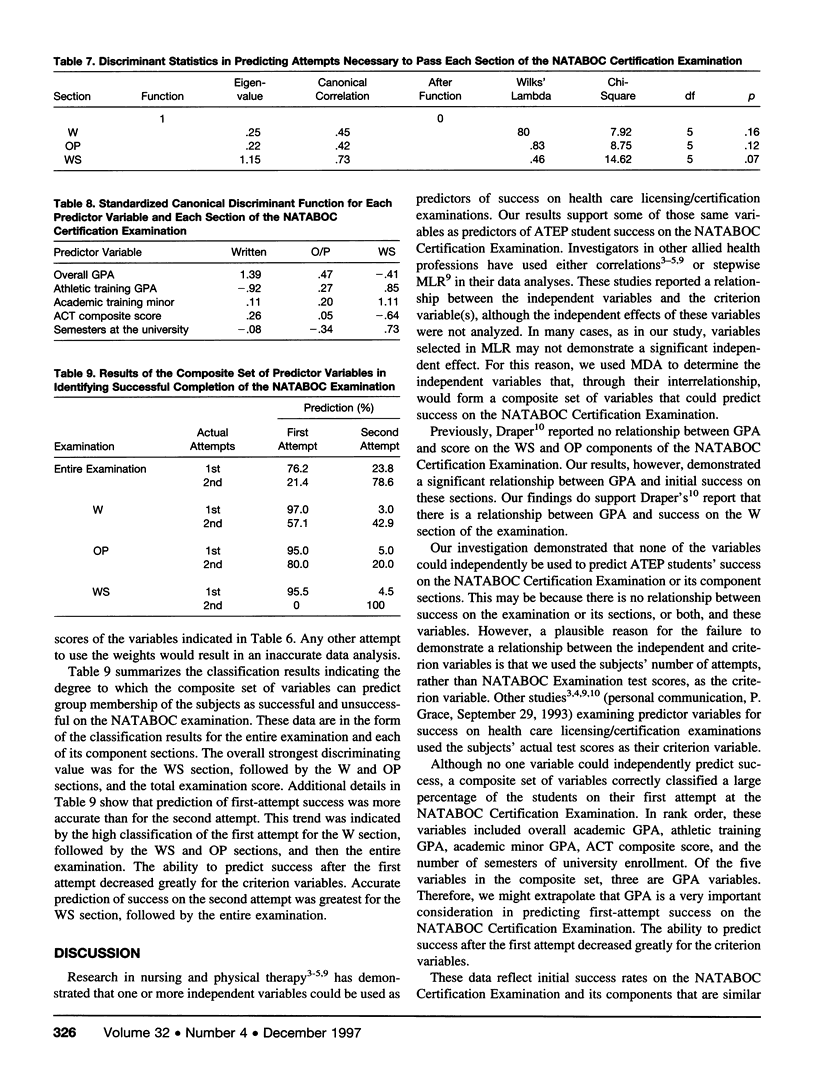
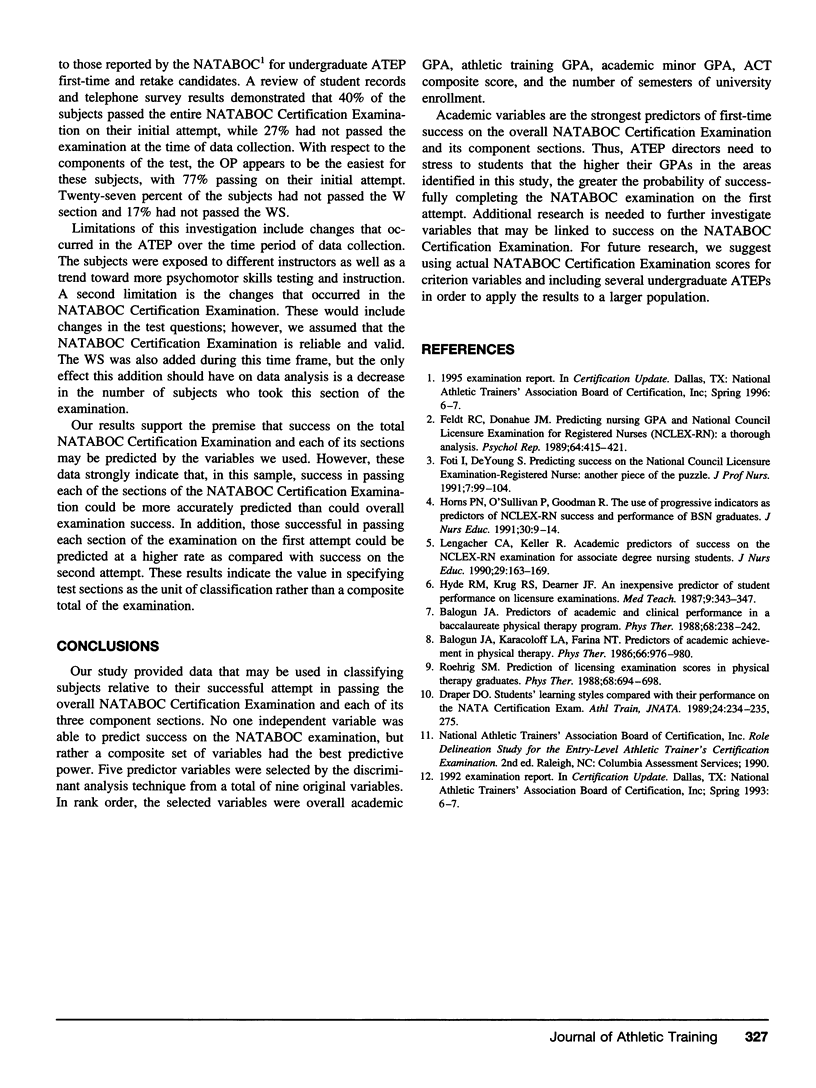
Selected References
These references are in PubMed. This may not be the complete list of references from this article.
- Balogun J. A., Karacoloff L. A., Farina N. T. Predictors of academic achievement in physical therapy. Phys Ther. 1986 Jun;66(6):976–980. doi: 10.1093/ptj/66.6.976. [DOI] [PubMed] [Google Scholar]
- Balogun J. A. Predictors of academic and clinical performance in a baccalaureate physical therapy program. Phys Ther. 1988 Feb;68(2):238–242. doi: 10.1093/ptj/68.2.238. [DOI] [PubMed] [Google Scholar]
- Feldt R. C., Donahue J. M. Predicting nursing GPA and national council licensure examination for registered nurses (NCLEX-RN): a thorough analysis. Psychol Rep. 1989 Apr;64(2):415–421. doi: 10.2466/pr0.1989.64.2.415. [DOI] [PubMed] [Google Scholar]
- Foti I., DeYoung S. Predicting success on the National Council Licensure Examination-Registered Nurse: another piece of the puzzle. J Prof Nurs. 1991 Mar-Apr;7(2):99–104. doi: 10.1016/8755-7223(91)90093-z. [DOI] [PubMed] [Google Scholar]
- Horns P. N., O'Sullivan P., Goodman R. The use of progressive indicators as predictors of NCLEX-RN success and performance of BSN graduates. J Nurs Educ. 1991 Jan;30(1):9–14. doi: 10.3928/0148-4834-19910101-05. [DOI] [PubMed] [Google Scholar]
- Hyde R. M., Krug R. S., Dearner J. F. An inexpensive predictor of student performance on licensure examinations. Med Teach. 1987;9(3):343–347. doi: 10.3109/01421598709034797. [DOI] [PubMed] [Google Scholar]
- Lengacher C. A., Keller R. Academic predictors of success on the NCLEX-RN examination for associate degree nursing students. J Nurs Educ. 1990 Apr;29(4):163–169. doi: 10.3928/0148-4834-19900401-06. [DOI] [PubMed] [Google Scholar]
- Roehrig S. M. Prediction of licensing examination scores in physical therapy graduates. Phys Ther. 1988 May;68(5):694–698. doi: 10.1093/ptj/68.5.694. [DOI] [PubMed] [Google Scholar]


